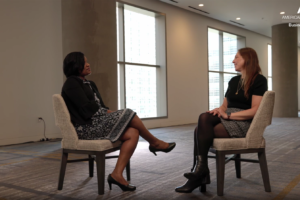CURRENT MONTH (September 2023)
Business Litigation
Delaware Supreme Court Reaffirms Broad Contractual Freedom Concerning Remedies for Parties to LLC Agreements
In Holifield v. XRI Investment Holding LLC, the Delaware Supreme Court upheld the Delaware Court of Chancery’s finding that a transfer of units was invalid under the applicable limited liability company agreement, which also, per the terms of the agreement, rendered the noncompliant transfers “void,” meaning that affirmative defenses did not apply. In so doing, the Supreme Court reaffirmed its prior ruling in CompoSecure, L.L.C. v. CardUX, LLC, 206 A.3d 807, 816 (Del. 2018), which permits parties to an LLC agreement to contract for incurable voidness. Though the Court of Chancery acknowledged that it was bound by CompoSecure, it urged the Supreme Court to adopt an alternative framework that would preclude parties from contracting for incurable voidness and reserve such a remedy for violations of state-imposed limits. The Supreme Court declined to accept that invitation, largely relying on the text and underlying policies of the Delaware Limited Liability Company Act, which establishes broad contractual freedoms for Delaware limited liability companies. The Court also found that the parties’ intent to contract for incurable voidness must be clear, though it declined to require that any “talismanic magic words” be included to establish such a remedy.
Dispute Resolution
Eleventh Circuit Upholds Arbitral Award Despite Non-Disclosure
By Leslie A. Berkoff, Partner and Chair of Dispute Resolution Department, Moritt Hock & Hamroff LLP
In Grupo Unidos por el Canal, S.A., v. Autoridad del Canal de Panama, the Eleventh Circuit upheld an arbitral award notwithstanding the arbitrators’ failure to make certain disclosures regarding possible sources of bias. The underlying dispute was between the Panama Canal Authority (which manages the operation of the Panama Canal), and Grupo Unidos por el Canal, S.A., a contractor hired to work on an expansion of the Canal. After the project was beset with delays, the parties brought claims to arbitration pursuant to the language of the underlying agreement. The arbitration spanned five years, and a panel of three arbitrators ordered Grupo Unidos to pay approximately $250 million in damages. At this point, Grupo Unidos requested additional disclosures from all of the arbitrators and learned that the arbitrators had not only previously worked with each other, but had also worked with Panama’s counsel.
Grupo Unidos then filed an application with the ICA to remove the arbitrators, contending that the non-disclosures were “highly problematic” and brought the arbitrators’ neutrality into question. The ICA confirmed that non-disclosures occurred but found there was no conflict warranting disqualification. Grupo Unidos moved to vacate the award in the Southern District of Florida under the New York Convention (codified in Chapter 2 of the Federal Arbitration Act (FAA)). The District Court upheld the arbitration award, and the Eleventh Circuit went on to affirm the District Court.
The Eleventh Circuit determined that Grupo Unidos had failed to present anything reaching the “high threshold” required for vacatur. Though an award can be vacated under the FAA if the arbitrator “knows of, but fails to disclose, information which would lead a reasonable person to believe that a potential conflict exists” (“evident partiality”), the court held that this applies only if the alleged partiality is “direct, definite and capable of demonstration rather than remote, uncertain and speculative.” The arbitrators’ having worked with each other and other parties was not sufficient to justify the Court’s vacating an award, although the Court did recognize that full disclosure is important and should be maintained. To the extent that Grupo Unidos made claims under Article V of the New York Convention, which offers defenses to confirming an arbitral award that include if “[the] recognition or enforcement of the award would be contrary to the public policy of that country,” it held that those defenses did not apply for similar reasons to the evident partiality issue or that the record of the tribunal did not reflect the relevant process issues.
The takeaway here is that even in the face of clear non-disclosures a court will only vacate an award in “exceptional circumstances.”






